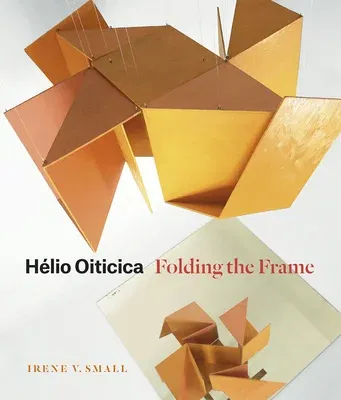Irene V Small
(Author)Hélio Oiticica: Folding the FrameHardcover, 3 February 2016

Qty
1
Turbo
Ships in 2 - 3 days
In Stock
Free Delivery
Cash on Delivery
15 Days
Free Returns
Secure Checkout

Print Length
304 pages
Language
English
Publisher
University of Chicago Press
Date Published
3 Feb 2016
ISBN-10
022626016X
ISBN-13
9780226260167
Description
Product Details
Author:
Book Format:
Hardcover
Country of Origin:
US
Date Published:
3 February 2016
Dimensions:
26.16 x
22.35 x
2.79 cm
ISBN-10:
022626016X
ISBN-13:
9780226260167
Language:
English
Pages:
304
Publisher:
Weight:
1360.78 gm